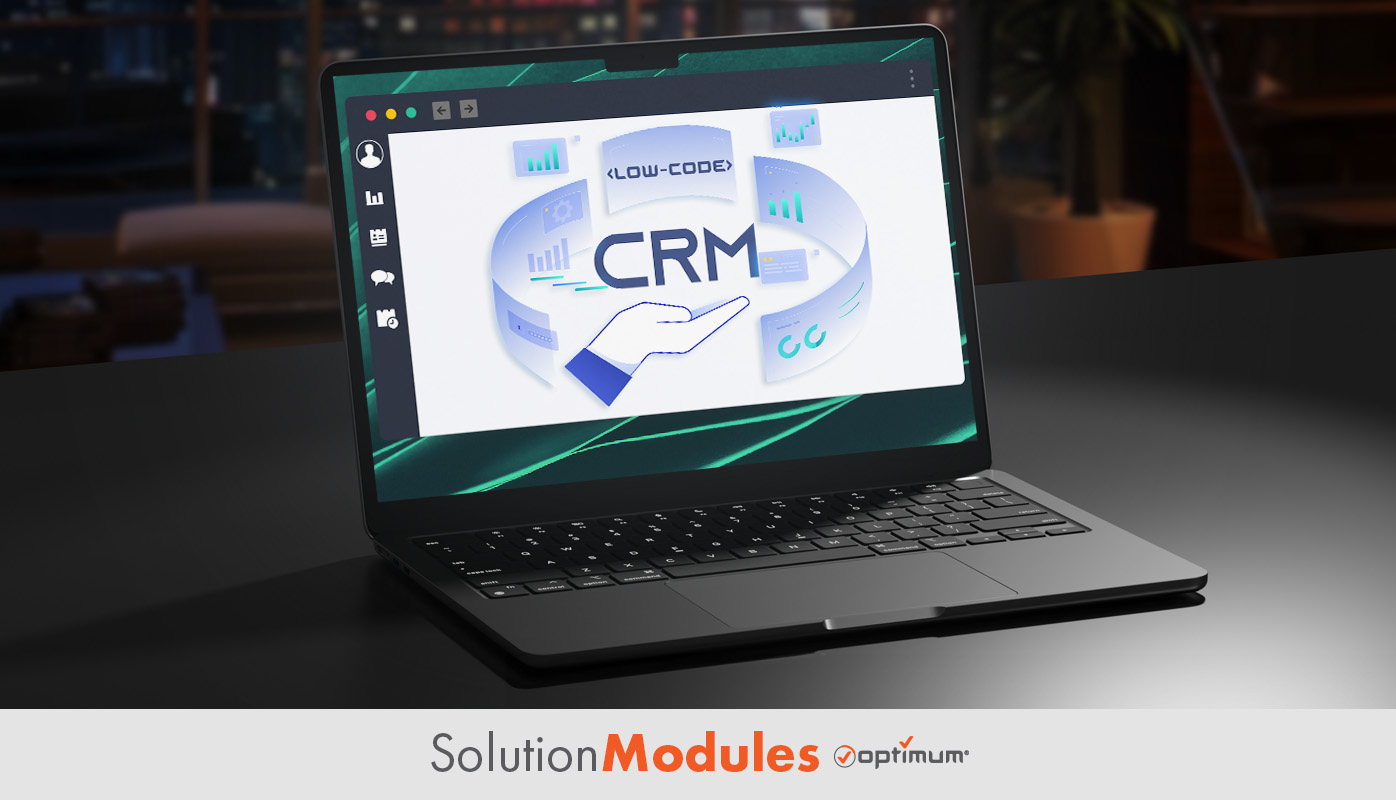
No-Code vs. Low-Code CRM Everything You Need to Know
Table of Contents
- Understanding No-Code and Low-Code CRM
- Key Benefits of No-Code and Low-Code CRM Solutions
- Essential Features of No-Code and Low-Code CRM Platforms
- Implementing No-Code and Low-Code CRM Solutions
- Future Trends in No-Code and Low-Code CRM
- FAQ
- Conclusion

Customer relationship management (CRM) solutions are indispensable tools for businesses seeking to streamline their operations and enhance customer interactions. No-code and low-code CRM platforms have emerged as revolutionary alternatives to traditional CRM systems, offering unparalleled flexibility, ease of use, and cost efficiency.
In this comprehensive guide, we will delve into the intricacies of no-code and low-code CRM solutions, highlighting their benefits, key features, and how they can be leveraged to drive business success.
Key Takeaways
- No-code CRM platforms allow users to build CRM applications without coding knowledge, using drag-and-drop interfaces.
- Low-code CRM platforms combine visual development tools with the option for custom coding for more complex needs.
- Both no-code and low-code CRMs offer accelerated development, cost efficiency, enhanced customization, and improved user experience.
- Key features include drag-and-drop interfaces, pre-built templates, robust integration capabilities, and scalability.
Understanding No-Code and Low-Code CRM
What is No-Code CRM?
No-code CRM platforms empower users to create and customize CRM applications without the need for programming knowledge. These platforms utilize intuitive drag-and-drop interfaces, pre-built templates, and simple configuration settings, enabling users to build robust CRM solutions rapidly. No-code CRM solutions are ideal for businesses looking to minimize development costs and reduce dependency on IT departments.
What is Low-Code CRM?
Low-code CRM platforms strike a balance between no-code simplicity and the flexibility of traditional development. They offer visual development tools along with the option to write custom code for more complex functionalities. Low-code CRMs are suited for businesses that require more customization while still benefiting from the accelerated development process.
Key Benefits of No-Code and Low-Code CRM Solutions
Accelerated Development and Deployment
No-code and low-code CRM platforms significantly reduce the time required to develop and deploy CRM solutions. The visual development environment allows for quick prototyping and iterative improvements, enabling businesses to respond swiftly to market changes and customer needs.
Cost Efficiency
By eliminating the need for extensive coding and reducing reliance on specialized IT resources, no-code and low-code CRMs offer substantial cost savings. Businesses can allocate their budgets more effectively, focusing on strategic initiatives rather than development overheads.
Enhanced Flexibility and Customization
No-code and low-code CRMs provide unparalleled flexibility, allowing businesses to tailor their CRM systems to specific needs without extensive coding. Users can easily add or modify features, integrate with other systems, and adapt to evolving business processes.
Improved User Experience
The intuitive interfaces of no-code and low-code CRMs make them accessible to non-technical users, fostering greater adoption and engagement across the organization. This leads to improved data accuracy, better customer insights, and enhanced overall user experience.
Essential Features of No-Code and Low-Code CRM Platforms
- Drag-and-Drop Interface: A hallmark of no-code and low-code CRM platforms is the drag-and-drop interface, which simplifies the creation and customization of CRM applications. Users can easily design workflows, forms, and dashboards without writing a single line of code.
- Pre-Built Templates and Modules: These platforms often come with a library of pre-built templates and modules tailored to various industries and use cases. These ready-made components enable users to quickly assemble functional CRM solutions with minimal effort.
- Integration Capabilities: Seamless integration with other business applications is crucial for CRM systems. No-code and low-code CRMs offer robust integration capabilities, allowing businesses to connect their CRM with marketing automation tools, ERP systems, and other essential software.
- Scalability and Performance: No-code and low-code CRM platforms are designed to scale with the growth of your business. They can handle increasing volumes of data and user interactions without compromising performance, ensuring a consistent and reliable user experience.
Implementing No-Code and Low-Code CRM Solutions
Identify Business Requirements
The first step in implementing a no-code or low-code CRM solution is to identify your business requirements. Understand the specific needs of your organization, such as the desired features, integration points, and customization levels.
Choose the Right Platform
Evaluate different no-code and low-code CRM platforms based on their features, pricing, and support. Consider factors such as ease of use, scalability, and integration capabilities to select the platform that best aligns with your business goals.
Customize and Configure
Once you have chosen a platform, customize and configure it to meet your specific requirements. Utilize the drag-and-drop interface, templates, and modules to build a CRM solution that addresses your business processes and customer interactions.
Test and Iterate
Conduct thorough testing to ensure your CRM solution functions as expected. Gather feedback from users and make iterative improvements to enhance usability and performance. Regular updates and refinements will keep your CRM system aligned with evolving business needs.
Train and Onboard Users
Provide comprehensive training and onboarding for users to maximize the adoption and effectiveness of your CRM system. Ensure that users are comfortable with the interface and understand how to leverage the CRM's features to improve their workflows.
Future Trends in No-Code and Low-Code CRM
AI and Automation
The integration of artificial intelligence (AI) and automation capabilities into no-code and low-code CRMs will revolutionize customer relationship management. AI-driven insights, predictive analytics, and automated workflows will enhance decision-making and operational efficiency.
Enhanced Mobile Functionality
With the increasing reliance on mobile devices, no-code and low-code CRM platforms will continue to enhance their mobile functionality. Mobile-first designs and responsive interfaces will ensure seamless access and usability across different devices.
Advanced Customization Options
Future no-code and low-code CRM platforms will offer even more advanced customization options, allowing businesses to create highly tailored solutions. This will include greater flexibility in designing user interfaces, configuring workflows, and integrating with third-party applications.

FAQs
What is the difference between no-code and low-code CRM?No-code CRM platforms require no programming knowledge and use drag-and-drop interfaces, while low-code CRM platforms offer visual development tools with the option for custom coding.
What are the benefits of using a no-code or low-code CRM?Benefits include accelerated development, cost efficiency, enhanced customization, and improved user experience.
How do no-code and low-code CRMs enhance user experience?These platforms provide intuitive interfaces, making them accessible to non-technical users and fostering greater adoption and engagement.
What are some essential features of no-code and low-code CRM platforms?Essential features include drag-and-drop interfaces, pre-built templates, integration capabilities, and scalability.
Conclusion
No-code and low-code CRM solutions represent a significant advancement in customer relationship management, offering unprecedented flexibility, cost savings, and ease of use. For those looking to maximize the potential of their CRM systems, Optimum Customizable CRM offers a unique blend of powerful features, user-friendly interfaces, and scalable solutions tailored to meet your specific business needs.
Embrace the future with the Optimum Customizable CRM module and transform your customer relationship management strategy today. Contact us today and let us show you what we can do!